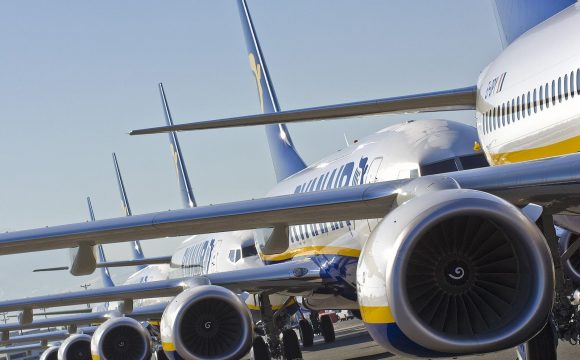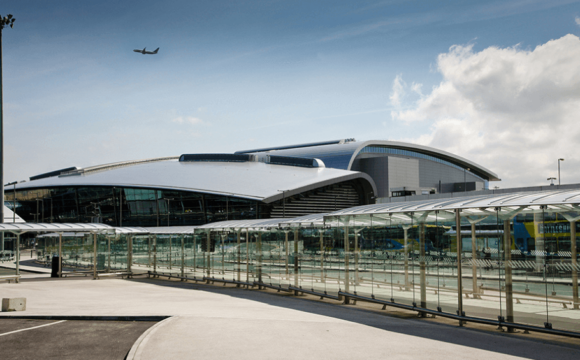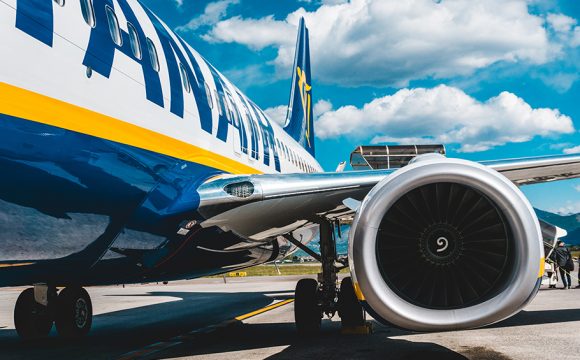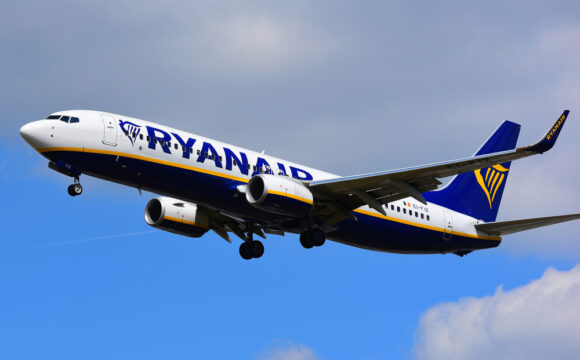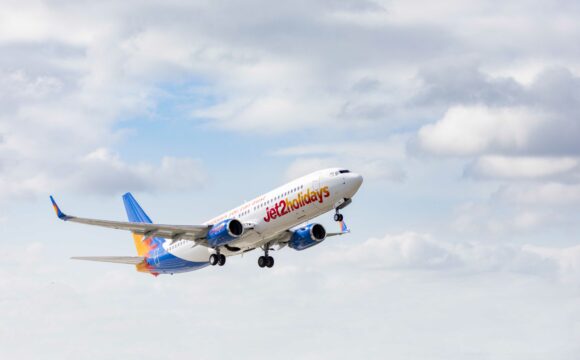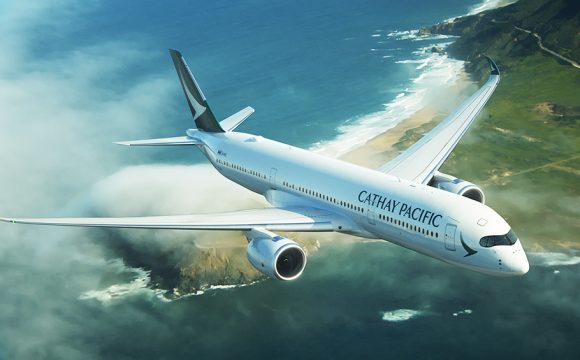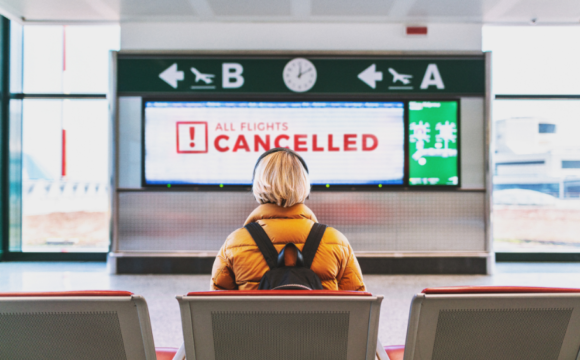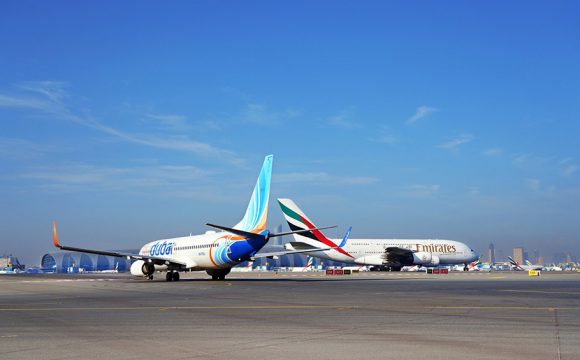ABTA Chief Executive Mark Tanzer’s opened today’s (October 13) ABTA Travel Convention live from East Wintergarden in London’s Canary Wharf and online via the customised digital platform.
In his opening speech Mr Tanzer said that the past few years has seen a lot of change from the Travel Industry, “Brexit has taken its bumpy road from referendum to reality. We’ve had bastions of the industry – Monarch and Thomas Cook – leave the scene. And, as if that wasn’t enough – we’ve had the pandemic, and learned to live life in two dimensions!”
He also took the opportunity to praise the travel industry for its resilience: “That is quite a lot for the world, for the travel industry, and for each of us in our businesses and as individuals to absorb – and yet here we are today! Still standing!”
Addressing the Covid pandemic and the resulting global lockdowns he said: “If anything has tested the resilience of the travel industry it has been the last eighteen months where international travel has been forced into a mini ice-age. Two summers and one and a half winters have been written off, and only now are we starting to see the thaw. It’s too early to speak of recovery, and I’m acutely aware of how many of our Members are still perilously close to the cliff edge. But there are signs that the darkest clouds may be breaking up.”
He also touched on the lifting of travel restrictions, saying that “recent customer research shows intention to travel both for this winter, and for the next twelve months, heading back to close to pre-Covid levels”.
“The lifting of the travel restrictions over the last month has seen customers start to reappear, their innate appetite for travel no longer blunted by anxieties about quarantine, testing or bureaucracy,” he said. “ABTA’s most recent customer research shows intention to travel both for this winter, and for the next twelve months, heading back to close to pre-Covid levels. Of course, a lot of those bookings will have been deferred arrangements from 2019 and 2020, and intention to travel does not in itself equate to actual bookings, but it does demonstrate the underlying determination to travel again, which should give us, and financial backers, confidence.”
He continued: “And the optimist in me says that the love of travel may even have been intensified – absence does make the heart grow fonder, after all – and that where we were perhaps in danger of complacency, we now experience again the sense of something new and exciting, like an old painting returned to its original, vivid colours.
“ABTA has been strongly critical of the Government through the pandemic, for its failure to understand and support an industry that its own data show to have been the longest and hardest hit, and when it’s clear that international travel is on a much shallower recovery trajectory to other sectors, such as UK retail, or UK hospitality. We desperately needed to see the restrictions and testing requirements eased, and we’re glad that the Government has finally responded to our calls.
“But the job is not yet done – we still need to think of how unvaccinated passengers can be freed to travel; how we can ease the red tape around entering the UK, and how we can harmonise vaccine certification across the world. And, as I said, our Members are still starved of cash. Despite the more positive outlook, it will take time for travel to get fully back on its feet. We urgently need the Chancellor to extend business support measures, which will for some Members will mean the difference between survival and failure.
“I’ve said previously that the UK’s outbound travel sector – which accounts for a quarter of a million jobs directly, and the same number again in its extended supply chain – feels like a political orphan – dealing and pleading with a host of Government departments, none of which see outbound travel as their primary concern, or their special responsibility.
“This challenge has always dogged our industry, and the pandemic has thrown the problem into sharp relief. I repeat the call on Government to give one of its Ministers dedicated responsibility for outbound travel, whose issues immediately impact not only thousands of jobs across the country, but the happiness and health of tens of millions of British tourists.
“The Travel Convention has always been a forward-looking event, and today we shall be thinking about how the world of travel will change as a result of the pandemic. Whatever else is different, we now know in practice what a global pandemic is, how it spreads and how quickly panic and self-interest set in.
“I just read a review in this week’s Economist of a book called ‘Geopolitics for the End Time’, which gloomily observes how the pandemic deepened political divisions and mistrust, within and between countries. International travel, by definition, cannot be managed by countries in isolation – it would be like playing tennis on your own.
“As we move, hopefully, out of CoVid-19, we need to build on the painful lessons of the last eighteen months to prevent the next epidemic from bringing travel, and economies, to a grinding halt. The travel industry, public health bodies, and governments must put in place – at a national and supra-national level – cross-border protocols for data sharing, testing, selective quarantining and vaccine sharing and certification to absorb the shock of any future outbreaks, allowing businesses to continue to trade, and travellers to continue to move.
“We have a clutch of freshly-minted experts – we must use them. A dedicated Minister is essential to pull the stakeholders together to build future resilience and protect the UK’s position as an international, connected economy.
“Our existence as travel businesses, and suppliers to travel businesses, is inextricably linked to government policy, like it or not. We are already a highly regulated industry, whether you think about financial protection – and those regulations are up for review in the light of Covid experience – or the health and safety of staff and customers.
“And the real and present challenges of climate change, and supply chain sustainability more broadly, bring us into direct contact with UK government policy and with that of destination governments.
“Meeting the sustainability challenge head on is not only a political necessity, of course, but also a commercial one. Customer confidence, which has taken a knock anyway over the past eighteen months – is essential to our industry’s recovery and future prosperity. And part of that confidence is confidence to travel with a good conscience.”
Mentioning the demonstration from animal activists, which took place outside the Convention building this morning, Mr Tanzer said: “Those of you who are here in person today cannot have missed the demonstration outside the building, calling on ABTA to discourage the promotion of marine parks. ABTA has been active in the area of animal welfare since 2013, when we published a series of animal welfare guides, compiled with input from many zoologists and non-governmental organisations. These guides set out basic welfare requirements – and unacceptable practices – where animals and tourism intersect. They are now used internationally by tour operators to work with attractions.
“Now is not the time to go into the issue of marine parks in detail, except to say that professional opinion is divided. ABTA makes available to our Members the relevant and current research, to allow them to make an informed decision as to whether to market these attractions.
“Last year at our Convention we launched our ‘Tourism for Good’ report, setting out a sustainability journey that will allow tourism to deliver real benefits, while managing its downsides, and we have a panel discussion on this very topic later today.
“It’s not just customers who are demanding high sustainability standards, but employees, too. And residents in destinations. And, increasingly, investors. All our most important stakeholders, in fact!”
The theme of today’s convention is ‘Leading the Way’ and Mr Tanzer said: “I don’t think the leadership challenge for the travel industry has ever been greater. The pioneers of our industry were fantastically successful in launching the idea and delivery of international travel. The second generation oversaw the extension of tourism geographically and demographically to make the dream of travel accessible to tens of millions of tourists. We are now the generation that has to manage the challenges of growth, and competition.
“I do believe that our leadership challenge is not just an abstract, ’industry’ issue, but very much about each of us as individual leaders. The pandemic has made many of us ‘lead’ as well as ‘manage’ – taking staff, customers and ourselves on a journey into the unknown. We have fascinating, and diverse, speakers today, whom will be sharing their personal visions and values as they look to the future.
“One of the few things that can be said with certainty about the future of travel – taken far enough out -is that we, as individuals, will not be part of it! Bringing talent into the industry is the other part of ‘Leading the Way – proving to young people that the travel industry can deliver their career aspirations not just in terms of earning power, but, as importantly, in terms of values and personal fulfilment. That we are fighting a ‘War for Talent’ is a cliché, but like many clichés, it is nonetheless true. We’ll only win that that war if we face up to today’s leadership challenges, and take bold steps.
“I said a few minutes ago that ‘We’re still standing!’. That’s good, but even better is that we’re on the threshold of a new era. The future is demanding of us, but if we act now we can deliver a rewarding future for ourselves and future generations,” he added.



